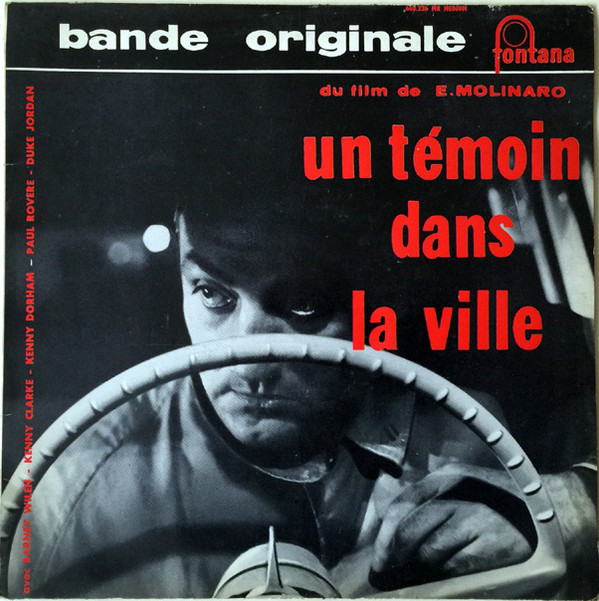

Aka - Witness in the City
The more I see of the French crime films of the 1950's, the more I realize
that there is this whole batch of films that are basically unknown to most
of us that are great films - noir, gangster, heist films. This one is terrific.
Taut as a pulled wire that gets tighter and tighter as the film proceeds.
Shot in minimalist style nearly entirely in the night time in beautiful black
and white with glistening Parisian streets that rush by, narrow cobble stone
alleys and cafes filled with smoke and laughter. And a man on the run. It
is fatalistic in tone with a small five piece jazz band sometimes driving
the narrative, sometimes playing quietly underneath it (Kenny Clarke on drums,
Kenny Dorham on trumpet and French sax man and composer Barney Wilen). The
city of Paris is integral to the film - it is as much a character as the
people who inhabit it. Every time I see one of these French films I wish
I could go back in time and have moved to Paris when I was younger.
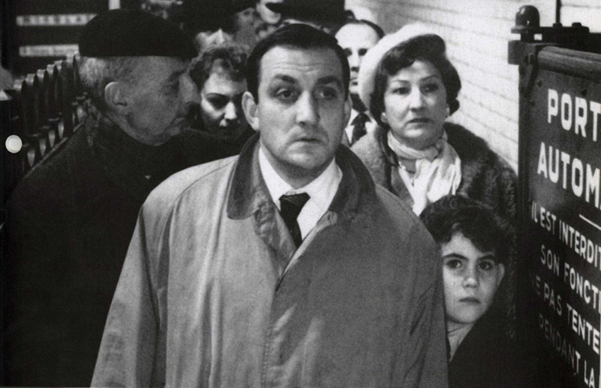
It should have been a simple murder. Both of them. A wealthy man throws his
mistress off a moving train and kills her and claims that she committed suicide.
I thought the whole point of mistresses was that you could just give them
their walking papers. Why kill them but he has his reasons I expect. The
police accept his story and he is a free man. But then not really. It turns
out that she had a husband (Lino Ventura as taciturn, gruff and determined
as ever) and he doesn't care that his wife cheated on him. He wants justice.
He commits what he thinks is the perfect murder. In fact, the victim tells
him as Ancelin sets him up for a "suicide" that he won't get away with it
- ironically that there is no perfect murder (which he thought until a minute
prviously that he had committed). Ancelin assures him this one is and strings
him up to die. At this point the film has barely begun.
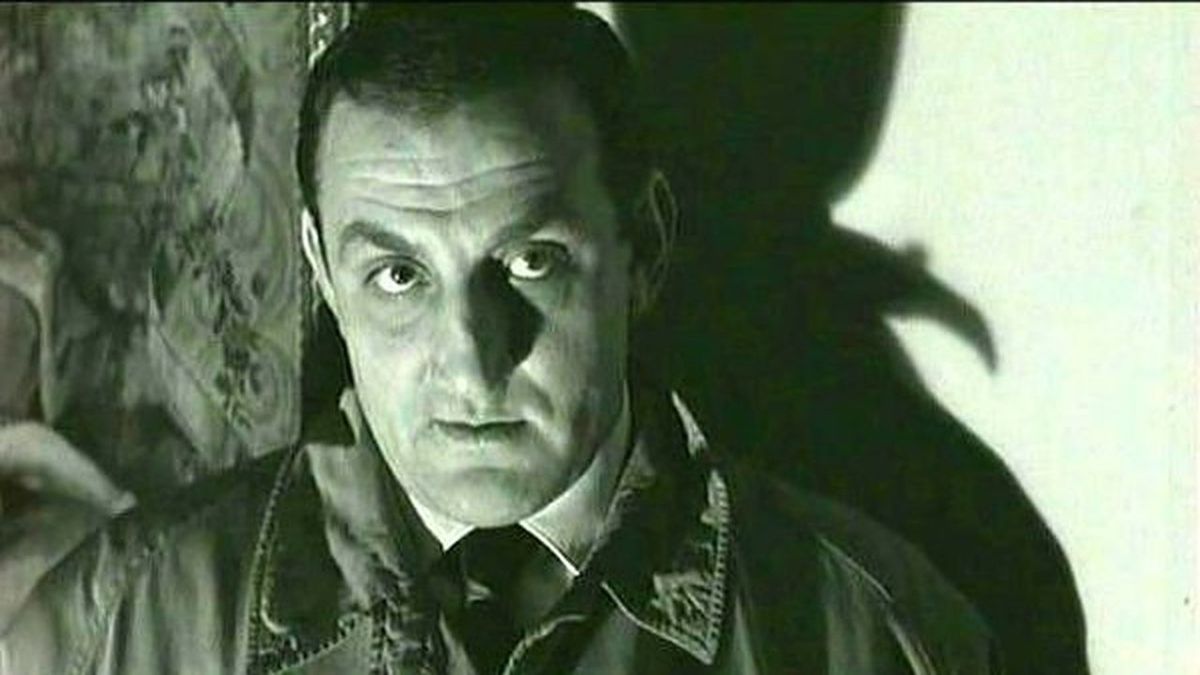
A perfect plan except for one thing - the victim had called for a taxi to
come pick him up and as Ancelin leaves the house he comes face to face with
him. He hesitates and the taxi driver (Franco Fabrizi) tired of waiting leaves
for the taxi depot to meet up with his girlfriend (Sandra Milo) who works
in the taxi call center with a bunch of other girls (all attractive). Ancelin
realizes that once the driver sees the news he will go to the cops and the
jig will be up. So Ancelin has no choice but to track him down and kill him.
And it becomes a tone poem of sorts as Ancelin silently follows him through
the streets, the drum beat getting faster, harder. And then it turns on him
in some remarkable chases through these winding streets. Riveting towards
the end.
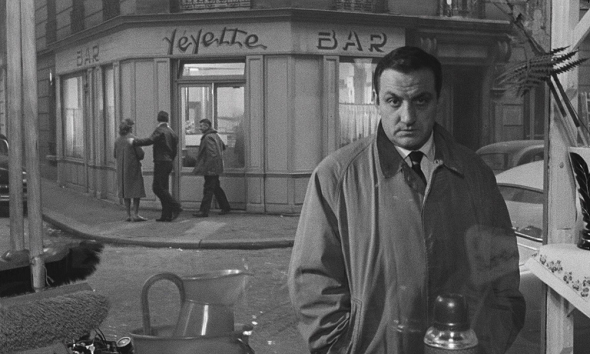
There are so many great well paced well directed scenes - Ancelin following
him through the crowded subway, the laughing girls in the phone center, the
bonhomie that the taxi drivers have for one another, the chattering in the
place they all hang out, the girls waiting for customers on the street -
all giving the film a sense of real life. With a killer just waiting for
the right moment. This is directed by Édouard Molinaro, who I know
nothing about other than he directed the two French versions of La Cage aux
Folles - which Hollywood was to remake at some point.
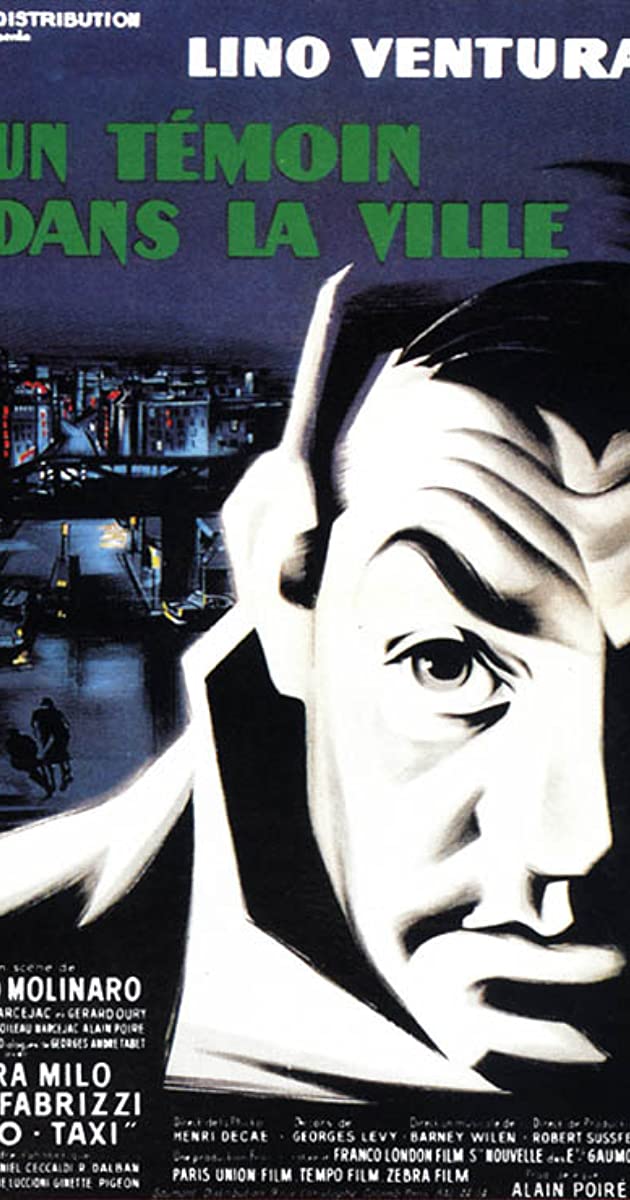
Lino Ventura is his usual solid self - the rugged face, the hulking body,
brooding, distant - but taking up great space on the screen. Which he has
to in this film because for a much of it, it is simply him - the camera capturing
his face as he desperately hunts down the driver. And he manages to be sympathetic
enough that at times you want him to just escape - just go away - he just
wanted to bring swift justice because the system wasn't able to - and then
it all goes horribly wrong. The more I see of him and Gabin I realize that
any of their films are worth watching.